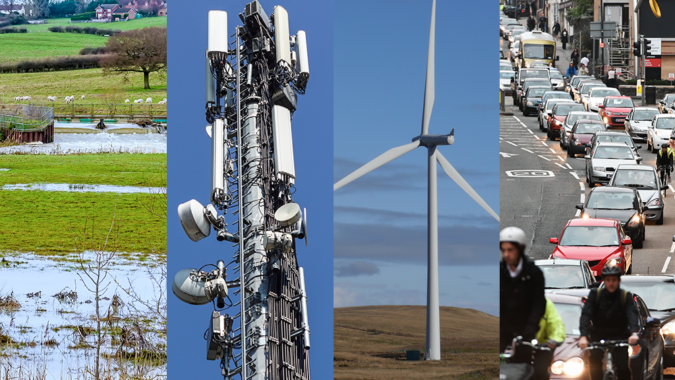Homes and businesses across the North West of England recently faced the prospect of a hosepipe ban, imposing similar restrictions to those consumers in Northern Ireland have been living with since the end of June.
Fortunately for them, this was called off after summer storms brought some much-needed relief. This year’s exceptionally hot summer – and frequent reports of record-breaking high temperatures – could mean we risk being lulled into a false sense of security that this sort of threat is a rare occurrence.
In fact, extremes of weather will become more common in future and this poses a significant risk to our water supplies. So we need to act now if we’re to increase the network’s resilience.
In our National Infrastructure Assessment we have looked at how to avoid droughts with such low rainfall that companies have to place restrictions on households’ supply by providing water only at certain times of the day, or through standpipes. Our analysis shows that without action, there is now as high as a one in four chance of this occurring between now and 2050.
To put this into context, while hosepipe bans were last imposed in 2012, the last time water supply to customers was restricted was in 1976.
Since water was privatised nearly three decades ago, companies have invested more than £140billion in the network, mainly on meeting new environmental restrictions set by the European Union. Some of that funding has also been spent on improving existing assets like pipes and reservoirs – but very little new infrastructure has been built.
In 2016, the water companies came together through Water UK to develop a long-term national perspective on resources, but that work doesn’t seem to have translated into the plans from each individual company, and there’s been little coordination since. Meanwhile, efforts to tackle leakages have stalled: significant progress was made to combat this issue in the 1990s and early 2000s, but today we are still losing as much of a fifth of the UK’s supply this way.
And there are few signs of consumer demand falling. Today, we consume 141 litres per person per day – just nine litres less than in 2000, and significantly more than the 115 litres that people consume each day in Belgium and Denmark.
Our clear conclusion is that even if we can reduce demand and cut the amount of water lost to leakages, we will still need new supply infrastructure. That will most likely be a combination of new reservoirs, desalination of sea water and re-using waste water, but we also want to see the expansion of water transfers, enabling water to be moved from areas with a surplus of supply to those in greater need.
We’ve recommended that regulators Ofwat launch a competitive process by the end of next year to facilitate the creation of a network of strategic water transfers, alongside approving other new supply infrastructure.
But we have also recommended that Government sets stretching and ambitious new targets for water companies to halve leakages across the network by 2050, and to allow compulsory metering wherever it is needed by the 2030s, to help reduce consumer demand to nearer 118 litres per person per day.
If we’re to have a sufficiently resilient network we need additional capacity of 4,000 megalitres a day. A third of this needs to come from building new supply infrastructure, a third needs to come from leakage reduction and a third from reducing customers’ demand. As well as ensuring the public supply system is more resilient to drought, this would also result in more water for the environment.
But overall, with the cause of these extremes of weather being climate change, we also need to ensure we meet our legally-binding targets to reduce greenhouse gas emissions by 80 per cent from 1990 levels, by 2050.
All of our work – including our recommendations in the UK’s first-ever National Infrastructure Assessment to switch to low-carbon energy sources and from petrol and diesel to electric vehicles – has been designed with this in mind.
We’ve set out ambitious recommendations for Government, for the regulator and for water companies to help make the supply system far more resilient than it is today, each with clear deadlines for implementation.
I very much hope they take up our advice. But with little sign of temperatures falling, and climate change meaning we’ll face this more often than in the past, we all need to do our bit to cut the amount of water we use – and the amount we waste.
Dame Kate Barker is a Commissioner with the National Infrastructure Commission



